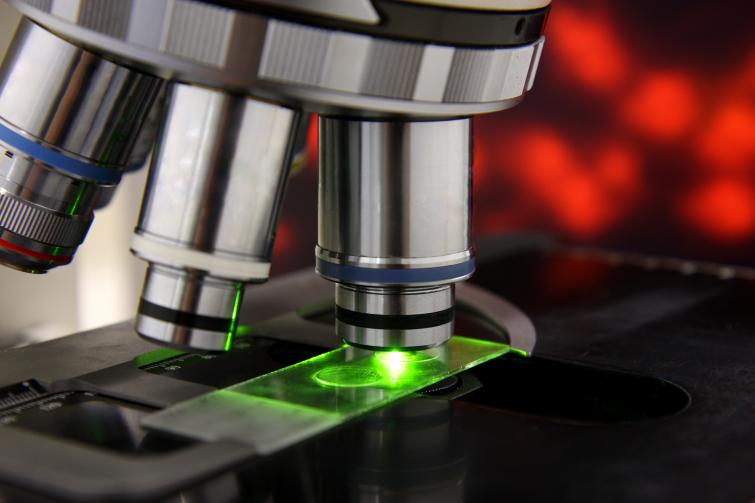
 awards
awards
Several Institut Pasteur scientists recognized with awards
- Five Institut Pasteur scientists recognized at the 2019 French Academy of Sciences Awards
The official prize-giving ceremony for the 2019 French Academy of Sciences Awards was held on November 26 at the Institut de France. Five Institut Pasteur scientists received awards this year.
• Lluis Quintana-Murci, 2019 winner of the Allianz-Institut de France Foundation Award

The annual Allianz-Institut de France Foundation Award goes to a scientist who heads a French medical or biomedical research team and whose research has led or may lead to clinical applications that may increase life expectancy through preventive or curative approaches. The aim of the award is to encourage further research.
This year's Allianz-Institut de France Foundation Award goes to Lluis Quintana-Murci, Head of the Human Evolutionary Genetics Unit at the Institut Pasteur, who has carried out large-scale research on the diversity of the human genome, from a basic science standpoint and also applied to the understanding of some phenotypes of medical interest, including the immune response.
His first genetics research supported the theory that early modern humans left Africa along a coastal route approximately 60,000 years ago. He then applied his expertise in evolutionary genomics to investigate questions about the genetic and epigenetic diversity of the human species, especially the way in which natural selection – especially that imposed by pathogens – has shaped the diversity of the human genome.
Lluis Quintana-Murci has also examined how the genetic variability of the host contributes to differences in immune response. His research on the evolution of the immune response supports the "hygiene hypothesis", according to which some alleles that may have been favored in the past because they offer an advantage during infection might today be responsible for increased susceptibility to autoimmune and inflammatory diseases.
Find out more
Consult Lluis Quintana-Murci's profile at pasteur.fr
• Simon Cauchemez, 2019 winner of the Louis-Daniel Beauperthuy Prize for molecular and genomic biology

The Louis-Daniel Beauperthuy Prize is a biennial award given to a French or foreign researcher in recognition of epidemiology research that has helped improve the lot of humanity. This year, the award goes to Simon Cauchemez, Head of the Mathematical Modeling of Infectious Diseases Unit, for the application of innovative methods to research into the epidemiology of viral diseases (including influenza, Ebola, chikungunya, Zika, dengue and yellow fever) and bacterial and parasitic diseases.
With his research, Simon Cauchemez aims to shed light on the spread of emerging infectious agents and improve infection prevention and control. His work is particularly important for public health.
Find out more
• Daria Bonazzi, 2019 winner of the "Major advances in French biology research" award
 The French Academy of Sciences' "Major advances in French biology research" award, endowed by the Mergier Bourdeix Foundation, goes to six young researchers who made major scientific breakthroughs in the field of biology in 2018 or 2019. This year, Daria Bonazzi, from the Pathogenesis of Vascular Infections Unit, was recognized for her research on the topic "Bacteria behave collectively as a viscous liquid to infect blood vessels more effectively."
The French Academy of Sciences' "Major advances in French biology research" award, endowed by the Mergier Bourdeix Foundation, goes to six young researchers who made major scientific breakthroughs in the field of biology in 2018 or 2019. This year, Daria Bonazzi, from the Pathogenesis of Vascular Infections Unit, was recognized for her research on the topic "Bacteria behave collectively as a viscous liquid to infect blood vessels more effectively."
• Philippe Glaser, 2019 winner of the Louis Pasteur Medal from the André-Romain Prévot Foundation

The Louis Pasteur Medal is awarded to a French bacteriologist for research that has improved knowledge in microbiology.
This year's prize goes to Philippe Glaser, who has made an outstanding and valuable contribution to the field of microbiology. Philippe Glaser was the first to develop a selection method for recombinant bacteria based on protein-protein interactions. He has coordinated several genomics programs at the Institut Pasteur.
His observations on the evolution of some pathogenic bacteria and on the mechanisms underpinning the emergence and global spread of antibiotic-resistant strains of major pathogenic bacteria have been particularly important.
• Raphaël Gaillard,2019 winner of the Philippe et Maria Halphen Prize

The Academy of Sciences also recognized the work of an Institut Pasteur scientist back in October, when Raphaël Gaillard was selected as the laureate of the 2019 Philippe & Maria Halphen Award.
The aim of this annual prize is to support the development of research projects on schizophrenia and severe depression. The award goes to a European French-speaking scientist who has helped demonstrate new therapeutic approaches or tools in patients.
The joint winners of this year's award are Raphaël Gaillard, from the Institut Pasteur's Experimental Neuropathology Unit, and Joël Swendsen, Research Director at the French National Center for Scientific Research (CNRS). Raphaël Gaillard, an expert in the field of cognitive science, has carried out research on depression based on an original clinical observation, and has investigated schizophrenia via an experimental pharmacological model. The model he chose to use is ketamine, a glutamate receptor antagonist known to cause psychiatric disorders similar to those observed in schizophrenia, in both patients and healthy subjects. More recently, based on his observation of the prevalence of depression in mastocytosis patients, Raphaël Gaillard proposed the theory that the drug has a direct effect on the microglia, which may interfere with the kynurenine metabolic pathway.
Find out more about the French Academy of Sciences Awards
- Carmen Buchrieser receives the 2019 Jacques Piraud Award

The scientific awards given by the French Foundation for Medical Research (FRM) were set up either on the initiative of the Foundation itself or by donors, in recognition of the work of scientists who have made a remarkable contribution to a field related to health. They include the Jacques Piraud Award, set up with a donation from Marcel Piraud and dedicated to his son, which recognizes research on infectious diseases.
This year, Carmen Buchrieser, Head of the Biology of Intracellular Bacteria Unit, received the award for her entire body of research demonstrating and elucidating the virulence factors behind legionellosis, a severe pulmonary infection that can be fatal in elderly or immunocompromised people and is on the rise in developed countries.
With her team, she investigates the genetic factors that give Legionella bacteria their virulence and the strategies they use to multiply in human cells. The scientists particularly demonstrated that the bacteria had acquired genes during their evolution which encode proteins resembling human proteins. By mimicking human proteins, these proteins enable the bacteria to hijack the functions of host cells to their advantage, for example by modulating the function of genes involved in the immune response or adjusting cellular metabolism. Carmen Buchrieser's findings have paved the way for the development of rapid diagnostic tests that may improve the surveillance of Legionella in the environment. Her work also has the potential to lead to novel host directed therapies that may be extended to other infectious diseases.